 J.D. Kleinke is a medical economist, health information industry pioneer, and author of the forthcoming Catching Babies. In a dramatic, powerful, and beautifully written post on The Health Care Blog, he captures the essence of what’s wrong with modern medicine. “Who would not find great drama in a medical culture so doomed and dysfunctional, and so utterly driven by the conflict between patient preference and provider prejudice.” Read more
J.D. Kleinke is a medical economist, health information industry pioneer, and author of the forthcoming Catching Babies. In a dramatic, powerful, and beautifully written post on The Health Care Blog, he captures the essence of what’s wrong with modern medicine. “Who would not find great drama in a medical culture so doomed and dysfunctional, and so utterly driven by the conflict between patient preference and provider prejudice.” Read more
Yearly Archives: 2011
Misc Links 2/4/11
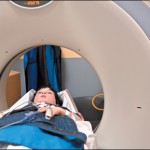 Picture This: The Average US Child Has Nearly 8 Imaging Tests by Age 18 (JAMA)
Picture This: The Average US Child Has Nearly 8 Imaging Tests by Age 18 (JAMA)
That excludes dental x-rays. First large, population-based study examines the use of radiography, computed tomographic (CT) scans, and other imaging procedures in pediatric populations. 42% of children get imaged.
Close Look at a Flu Outbreak Upends Some Common Wisdom (NYT)
A study of the 2009 swine flu epidemic found that children did not catch the flu by sitting near classmates, adults probably were not infected by their children, and closing schools had little effect. Disease spread through child’s network of friends. Read more
The absurdity of widowhood
 The New Yorker published a beautiful piece by Joyce Carol Oates on the death of her husband, Raymond Smith. Oates and Smith, who had been married 48 years, were in a car accident three years ago. The engine of their car was struck at high impact from the side, and their airbags inflated. Both Oates and Smith walked away from the scene, feeling lucky to be alive. Read more
The New Yorker published a beautiful piece by Joyce Carol Oates on the death of her husband, Raymond Smith. Oates and Smith, who had been married 48 years, were in a car accident three years ago. The engine of their car was struck at high impact from the side, and their airbags inflated. Both Oates and Smith walked away from the scene, feeling lucky to be alive. Read more
Misc Links 2/3/11
 The mysteries of kisses (New Scientist)
The mysteries of kisses (New Scientist)
Review of The Science of Kissing: What Our Lips Are Telling Us. At its most basic level, an exploratory kiss offers a reproductive advantage, providing genetic and hormonal information to those who pucker up.
Virginia to seek expedited Supreme Court review of suit over health-care law (Wash Post)
In a rare legal request to bypass appeals and get early intervention, Virginia attorney general asks Supreme Court for immediate review. Read more
Are doctors tired of practicing medicine?
 In the mid-20th century, physicians were among the most highly admired professionals, comparable with Supreme Court justices. … Depictions of physicians on television were overwhelmingly positive. Doctors were able to trade on this cultural perception for an unusual degree of privilege and influence.
In the mid-20th century, physicians were among the most highly admired professionals, comparable with Supreme Court justices. … Depictions of physicians on television were overwhelmingly positive. Doctors were able to trade on this cultural perception for an unusual degree of privilege and influence.
Today, medicine is just another profession, and doctors have become like everybody else: insecure, discontented and anxious about the future.
Read more
The up side of health care repeal
 A repeal or strike-down of Obamacare would likely lead to the US doing nothing for a few more years, then the system hits the point of complete crisis, and then there’s enough support for actual healthcare reform along the Medicare for all lines. Read more
A repeal or strike-down of Obamacare would likely lead to the US doing nothing for a few more years, then the system hits the point of complete crisis, and then there’s enough support for actual healthcare reform along the Medicare for all lines. Read more
Misc Links 2/2/11
 2010 Dietary Guidelines, deconstructed (Food Politics)
2010 Dietary Guidelines, deconstructed (Food Politics)
Marion Nestle digests the new 95-page “policy document.” Being a vegetarian is no longer high risk. Change the food environment. “Eat less cake, cookies, ice cream, other desserts, and candy.” That’s pretty explicit.
How Often Does the Oldest Person in the World Die? (Village Voice)
Every six months, more or less. The world’s oldest person in the world died on Monday at the age of 114 years, 195 days. The honor is now held by a woman 37 days younger. Eight out of ten of the last “winners” have been 114, with the other two living to 115. Read more
Buffness and beauty are arbitrary fashions
 When exercise comes wrapped in value judgme When exercise comes wrapped in value judgments, does it wind up entangled in an anxiety that threatens the very resolve to get fit? As Mr. LaLanne was siring new methods for shaping up, he was fathering something else, too: a potent, and in some cases immobilizing, strain of contemporary guilt. Read more
When exercise comes wrapped in value judgme When exercise comes wrapped in value judgments, does it wind up entangled in an anxiety that threatens the very resolve to get fit? As Mr. LaLanne was siring new methods for shaping up, he was fathering something else, too: a potent, and in some cases immobilizing, strain of contemporary guilt. Read more
Misc Links 2/1/11
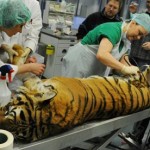 Tiger, tiger, moving right: Pioneering hip operation gives Girl a new start (Guardian)
Tiger, tiger, moving right: Pioneering hip operation gives Girl a new start (Guardian)
Eight-year-old Malayan tiger received world’s first prosthetic hip. Expected to live another 12 years. Malayan tigers are an endangered species, with only 500 living in the wild.
Better communication leads to better care (American Medical News)
Patients should speak up when they have concerns about patient modesty, and doctors should listen. Read more
Act now to prevent the economic meltdown of medicine
 The widespread assumption that we should blame personal lifestyles for our health problems allows corporations and the governments who fail to regulate them off the hook. It’s not politically or economically comfortable to acknowledge the underlying causes of disease — poverty, inequality, air and water pollution, contaminated food, unsafe working conditions, an obesegenic environment — and take responsibility for them. Read more
The widespread assumption that we should blame personal lifestyles for our health problems allows corporations and the governments who fail to regulate them off the hook. It’s not politically or economically comfortable to acknowledge the underlying causes of disease — poverty, inequality, air and water pollution, contaminated food, unsafe working conditions, an obesegenic environment — and take responsibility for them. Read more
Misc Links 1/31/11
 Dogs can be trained to sniff out bowel cancer, Japanese researchers say (Guardian)
Dogs can be trained to sniff out bowel cancer, Japanese researchers say (Guardian)
Specially trained Labrador retrievers are nearly as good at identifying cancer as a conventional colonoscopy. Their sense of smell can pick up minute traces of chemicals circulating in the human body.
Florida judge rules against Obama’s health reform (Guardian)
Conservative judge in conservative part of conservative state ruled health care reform unconstitutional. He argued that, because the bill includes the requirement that everyone buy insurance, the whole bill is unconstitutional. “Congress could require that people buy and consume broccoli at regular intervals,” he wrote. Read more
Fla judge rules against health care bill (& broccoli)
 A conservative federal judge in a conservative area of the conservative state of Florida ruled today on the health care reform act. Not only did he rule that the individual mandate – the requirement that everyone have insurance – was unconstitutional, which was expected. He declared the entire bill unconstitutional. Read more
A conservative federal judge in a conservative area of the conservative state of Florida ruled today on the health care reform act. Not only did he rule that the individual mandate – the requirement that everyone have insurance – was unconstitutional, which was expected. He declared the entire bill unconstitutional. Read more
Misc Links 1/30/11
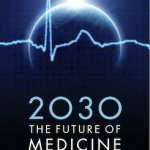 Back to the future—and to the drawing board (Lancet)
Back to the future—and to the drawing board (Lancet)
We live longer and can treat the diseases of old age. But this creates the potential for an economic catastrophe: ever-increasing demand met by ever-increasing supply. Review of 2030 – The Future of Medicine: Avoiding a Medical Meltdown.
FDA regulation and non-approved use of drugs (KevinMD)
An intelligent argument from a doctor on why he prescribes off-label. The FDA’s policy is medicine’s equivalent of “don’t ask, don’t tell” and encourages doctors to be snitches.
Read more
Can better care for the neediest patients lower costs?
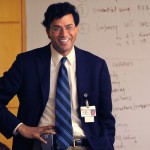 In yet another inspiring, beautifully written, and potentially influential New Yorker article, Atul Gawande tells the story of pilot projects by rogue doctors who reduce medical costs by attending to the sickest and neediest patients. … Brenner and his team are out there on the boulevards of Camden demonstrating the possibilities of a strange new approach to health care: to look for the most expensive patients in the system and then direct resources and brainpower toward helping them. Read more
In yet another inspiring, beautifully written, and potentially influential New Yorker article, Atul Gawande tells the story of pilot projects by rogue doctors who reduce medical costs by attending to the sickest and neediest patients. … Brenner and his team are out there on the boulevards of Camden demonstrating the possibilities of a strange new approach to health care: to look for the most expensive patients in the system and then direct resources and brainpower toward helping them. Read more
Misc Links 1/29/11
 TV reviews: Embarrassing Bodies and Head Over Heels in Rats (Guardian)
TV reviews: Embarrassing Bodies and Head Over Heels in Rats (Guardian)
UK TV show “Embarrassing Bodies.” Why do people with really embarrassing medical problems want to share them with the world?
The Hot Spotters – Can we lower medical costs by giving the neediest patients better care? (New Yorker)
Another inspiring and potentially influential article by Atul Gawande. Pilot projects by rogue doctors reduce medical costs by attending to the sickest and neediest patients. Acknowledges forces of resistance from vested interests, politicians. Read more
Misc Links 1/28/11
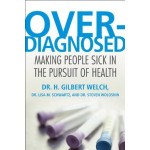 A Pound of Prevention Is Worth a Closer Look (NYT)
A Pound of Prevention Is Worth a Closer Look (NYT)
H. Gilbert Welch’s new book: ”Overdiagnosed: Making people sick in the pursuit of health.” For example, prehypertension, a new disease. The risks of harm from medication are high while the risk of harm from the disease is very low.
Life expectancy rising slowly in the US (New Scientist)
US life expectancy rising slower than expected due to smoking, obesity, and lack of exercise. Japanese live 5 years longer. European advantage is small, but widening. Read more
Misc Links 1/27/11
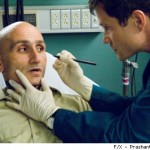 Conscious During Cosmetic Surgery (Chronicle)
Conscious During Cosmetic Surgery (Chronicle)
Latest cosmetic surgery trend: no general anesthesia. It’s cheaper. Patients are numbed, but pain is often excruciating and torturous. Surgeon: “It’s actually a lot of fun … like shopping for a new dress or a pair of shoes.”
Are Undergraduates Actually Learning Anything? (Chronicle)
More students are sent to college at increasingly higher costs, but for all too many the benefits — critical thinking, complex reasoning, written communication — are exceedingly small or nonexistent. Read more
Misc Links 1/26/11
 Does Raising the Thermostat Increase Obesity? (WebMD)
Does Raising the Thermostat Increase Obesity? (WebMD)
The body burns energy when it’s cold. “When you look at what could be causing the obesity epidemic, there are many possible causes besides eating too much and not exercising enough, and this is clearly one of them.”
Does central heating make us fat? (NHS)
Scientific article suggests that as indoor temperatures have increased, we’ve reduced the calories we use to stay warm, leading us to store the excess energy as body fat. The study is “not conclusive and does not prove that simply turning down your thermostat will make you thinner. An alternative explanation could be that people put on winter weight because they stay indoors to keep warm and therefore do less exercise.” Read more
Misc Links 1/25/11
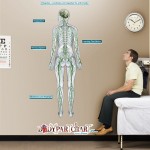 A Visit to the Doctor (Yale Journal for Humanities in Medicine)
A Visit to the Doctor (Yale Journal for Humanities in Medicine)
A physician describes an office visit that illustrates all the things wrong with today’s medical care.
As Doctors Age, Worries About Their Ability Grow (NYT)
A third of US doctors are over 65 and not immune to dementia and other frailties of aging. Mortality rates in complicated operations are higher for surgeons age 60-plus. Read more
Misc Links 1/24/11
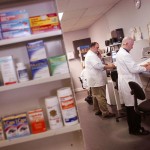 Glaxo Exec Concedes Drug Industry ‘Lost Its Way’ And Prescribes Changes (NPR)
Glaxo Exec Concedes Drug Industry ‘Lost Its Way’ And Prescribes Changes (NPR)
A “competitive selling model” that works fine for autos or candy isn’t right for medicines that can save people’s lives.
Text of speech by Glaxo president Deirdre Connelly (NPR) (PDF)
“An industry that should be hailed as one of the greatest contributors to health in our society actually ranks among the lowest in public trust. … our industry lost its way.” Read more
The downside of overly aggressive cancer screening
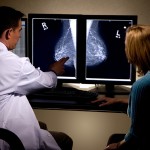 Common sense tells us that early detection of breast cancer is good, and most screening programs have been successful in reducing breast cancer deaths. … However, while some women truly benefit from early detection, others experience harm and unnecessary anxiety. The women who received false-positives in our study experienced a significant reduction in their quality of life, especially if they were prone to anxiety, and the effects of this lasted at least a year. Read more
Common sense tells us that early detection of breast cancer is good, and most screening programs have been successful in reducing breast cancer deaths. … However, while some women truly benefit from early detection, others experience harm and unnecessary anxiety. The women who received false-positives in our study experienced a significant reduction in their quality of life, especially if they were prone to anxiety, and the effects of this lasted at least a year. Read more
Creating an epidemic of cancer among the healthy
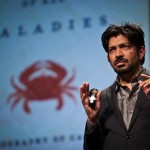 A world in which cancer is normalized as a manageable chronic condition would be a wonderful thing, but a risk-factor world in which we all think of ourselves as precancerous would not. It might decrease the incidence of some forms of malignancy while hugely increasing the numbers of healthy people under medical treatment. It would be a strange victory in which the price to be paid for checking the spread of cancer through the body is its uncontrolled spread through the culture. Read more
A world in which cancer is normalized as a manageable chronic condition would be a wonderful thing, but a risk-factor world in which we all think of ourselves as precancerous would not. It might decrease the incidence of some forms of malignancy while hugely increasing the numbers of healthy people under medical treatment. It would be a strange victory in which the price to be paid for checking the spread of cancer through the body is its uncontrolled spread through the culture. Read more
Screening for cancer and overdiagnosis
 Earlier this month scientists announced a test that can detect a single cancer cell in a blood sample. Although some news reports were realistic – BusinessWeek commented that “researchers still aren’t sure what these circulating tumor cells (CTCs) actually mean” – most greeted the news as a revolution in the fight against cancer, promising early, non-invasive detection. Read more
Earlier this month scientists announced a test that can detect a single cancer cell in a blood sample. Although some news reports were realistic – BusinessWeek commented that “researchers still aren’t sure what these circulating tumor cells (CTCs) actually mean” – most greeted the news as a revolution in the fight against cancer, promising early, non-invasive detection. Read more
Misc Links 1/23/11
 A Short-Circuit to Distracted Driving (NYT)
A Short-Circuit to Distracted Driving (NYT)
Cell phone carriers to offer service that disables incoming calls while phone is in motion. “The lure of mobile devices has addictive properties, in that people feel an adrenaline burst when a call or text comes in and get a rush when they answer.”
Plastic surgery companies under fire for tempting people into unneeded surgery (Guardian)
“Companies see cosmetic surgery as a market to be exploited. … They’re recruiting patients as agents to sell the treatments for a commission to friends who might never before have considered surgery.” Surgery is just another commodity.
Read more
Misc Links 1/22/11
 Why You Shouldn’t Snuggle with Your Pooch in Bed (Time)
Why You Shouldn’t Snuggle with Your Pooch in Bed (Time)
More than half of all US pet owners sleep with their pets. Health risk is relatively small.
For Many Species, No Escape as Temperature Rises (NYT)
Over the next 100 years, 20 to 30 percent of species could be lost if the temperature rises between 3.6 and 5.4 degrees Fahrenheit. More than that and the loss could be 50 percent.
Read more
Misc Links 1/21/11
 Congress Passes Socialized Medicine and Mandates Health Insurance – In 1798 (Forbes)
Congress Passes Socialized Medicine and Mandates Health Insurance – In 1798 (Forbes)
“The moral to the story is that the political right-wing has to stop pretending they have the blessings of the Founding Fathers as their excuse to oppose whatever this president has to offer.”
Newsflash: Founders favored “government run health care” (Wash Post)
History professor confirms: The founders of the Republic supported the basic idea of government run health care and the use of mandatory taxation to pay for it. How about that, Tea Party? Read more
Misc Links 1/20/11
 Should obesity prevention be a personal matter? (KevinMD)
Should obesity prevention be a personal matter? (KevinMD)
Why government policies focus on individual lifestyles as the source of obesity, rather than acknowledge the social, economic and political factors that create an obesogenic environment. Bravo!
Moving governmental policies beyond a focus on individual lifestyle: some insights from complexity and critical theories (Health Promotion International) (PDF)
Here’s the article on which the KevinMD post just referenced is based Read more
Misc Links 1/19/11
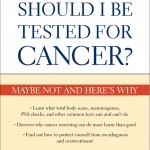 Cancer breakthrough — or nightmare? (CNN)
Cancer breakthrough — or nightmare? (CNN)
A simple blood test that detects minute quantities of cancer cells in the blood “could just as easily start a cancer epidemic. … The conventional wisdom is people either have a disease or they do not. But, in fact, there are a lot of people somewhere in between.” H. Gilbert Welch on overdiagnosis.
Intelligence and physical attractiveness (Science Direct)
If women prefer intelligent men because they have higher incomes and status, and if men prefer physically attractive females, eventually the two traits merge. Study finds physically attractive people are more intelligent.
Read more
Andrew Wakfield: The integrity and validity of science
 Doctors sign their names to papers that describe clinical trials of a drug. The papers turn out to be ghostwritten and paid for by the drug manufacturer. The pharmaceutical industry buries any study it doesn’t like, creating the impression that the majority of studies are favorable to what the industry wants us to believe. Journals are biased towards the publication of studies with positive results. All of these practices greatly skew doctors’ opinions of which drugs are effective and safe. Patients die needlessly as a result, and only then does the truth come out in whistle blower lawsuits. Read more
Doctors sign their names to papers that describe clinical trials of a drug. The papers turn out to be ghostwritten and paid for by the drug manufacturer. The pharmaceutical industry buries any study it doesn’t like, creating the impression that the majority of studies are favorable to what the industry wants us to believe. Journals are biased towards the publication of studies with positive results. All of these practices greatly skew doctors’ opinions of which drugs are effective and safe. Patients die needlessly as a result, and only then does the truth come out in whistle blower lawsuits. Read more
Misc Links 1/18/11
 Use of antidepressant to treat hot flashes raises concern (Montreal Gazette)
Use of antidepressant to treat hot flashes raises concern (Montreal Gazette)
“You’re looking at something that is actually a drug for a fairly serious psychiatric disorder that is being used for something that is a normal part of menopause.” It’s called medicalization.
The War on Logic (NYT)
Krugman on health care repeal: “The modern G.O.P. has been taken over by an ideology in which the suffering of the unfortunate isn’t a proper concern of government, and alleviating that suffering at taxpayer expense is immoral, never mind how little it costs.”
Read more

